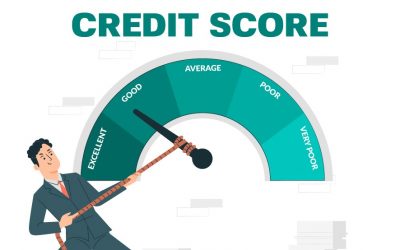Here are the top 5 tips to avoid getting ripped off by scammers

Steers clear of scams
Being victimized by a scammer can be very disconcerting. They may strike when you least expect it, and if you think you are safely traipsing around in the virtual world, using social media and conversing with a lot of people, think again. A scam may rear its ugly head not just online, though, but also through phone calls/text messages, postal mail, or right before your nose while transacting at a free-standing Automated Teller Machine.
There is occasional news nowadays of that scream “Scammed!” To protect yourself and your family members from falling into the clutches of a scammer, be wary of the red flags or telltale signs of a rip-off or a fraudster’s maneuverings. First and foremost, you need to acknowledge that scams may exist in almost any space. A good friend may cite a viable business opportunity, little knowing that he or she is being scammed. A seemingly trustworthy marketer may wheedle money out of a consumer who has left digital traces indicating his personal preferences
Just what is a scam? It is something that smacks of dishonesty or deceit, usually to get money. There are bank scams, phone scams, financial scams, the list goes on. Given the wide array of scams that may be perpetuated in diverse methos ranging from simple to sophisticated, erring on the side of caution is understandable. Such scammers in the contemporary age use tools of a social engineering nature, like phishing, or pharming attack that redirects their target-internet users accessing a specific website to a different, fake site. The end goal: to trick their victims into parting with information that the fraudster wishes to obtain, and in so doing steal money.
Here are some of the best ways to deal when faced with scenarios or situations that seem fishy or too good to be true:
#1 Be aware how scams work. They come in many different types, and it would be helpful to read about fraud, scammer tools, tips to avoid consumer scams, and the immediate steps to take including who do you report scams to. Online fraud, for instance, may be done in a number of ways, such as account takeover or identity theft. A cyber scammer may obtain online credentials, notably personal information of unsuspecting individuals, and log in as if they were the real user and then proceed to commit fraud. Follow your gut instinct when something seems off and contact your friend/s directly to verify it was really them who tried to message or request something from you.
#2 Know exactly who you are dealing with. If someone you do not know or whom you have not conversed with online suddenly chats with you, take the time to determine the legitimacy of the business or organization represented by the person. Request for details in writing. Visit the website, but refrain from opening any link sent. Do your own homework and try the phone numbers and email addresses you’ve found based on your own research.
Few people know that there may is a long list of scamming websites. Scam websites use deceit and resort to malicious attacks, with the end goal of getting victims to relinquish their personal or financial information. Look before you click popups, and review your security settings. Internet scamming signs may include odd grammar, spelling errors, low-resolution images, and lack of typical website portions like the About Us or Contact Us sections. Proceed with caution if you have noted these.
#3 Keep an eye out for scam alert or announcements. These may be posted in companies’ official platforms or websites, or disseminated as news. The more you now, the less the chances of your being duped. Empower yourself and take stock of anti-scam campaigns and fraud alert that are free and informative. Never let your guard down. With each passing day, techniques to commit financial fraud or other types of frauds & scams are being finetuned. Gain the upper hand by being updated with verifiable news and facts, and do not fall prey to message-based scams.
#4 Do not succumb to pressure to act quickly. There will always be people who do hard selling, but you can always refuse, especially if the “seller” or marketer wants to fasttrack things, or tries to convince you to decide quickly, usually stating that the special offer is good only at a certain time. Take the time to read a contract or get legal advice before affixing your signature. Scammers will attempt to make you pay immediately, whether by doing a quick money transfer or sending it by courier. They may try tactics, like ensnaring you to reveal your personal information such as bank account details by pretending they are from your bank, or a top government agency, a charity organization, an established lending firm, or even from your family circle, and may drop lines like they are in trouble or urgently in need of funds because of Covid.
Indeed, besides bank scams, investment scams, ticket scams and pyramid schemes, COVID-19 scams also abound nowadays. Never supply personal information – from your date of birth to account numbers, Social Security number, and so on.
If you have been presented with prospects of an investment opportunity with guaranteed big returns, read the fine print, know the process, and speak with verifiable company representatives. One of the best ways to steer clear of current scams is to choose to deal only with reliable industry players.
#5 Do not get carried away by emotions like fear, worry, or even excitement. Temper your enthusiasm for quick gains, like if someone calls to say you won a hefty amount. You can stop scams right in their tracks by being mindful, not trusting, especially when the scammer mentions a family emergency, or a virus in your computer that may corrupt your files, or that you owe money. Whether it is a problem they cite or a prize dangled, do not act instantaneously and talk first to someone you know and trust. An IT consulting firm for small & medium-sized businesses tweeted, “hackers know human weaknesses, and they exploit them with great success,” so be always be watchful of such approaches.
Learning how to avoid online scams is do-able, and you can save a lot of headaches and avoid financial damage (or further loss) by arming yourself with these tips to gain the upper hand. Given the proliferation of scams these days, even honest-to-goodness organizations offering quality product lines are doubted.
At the end of the day, the consuming public just needs to be empowered by being educated and able to discern legitimate industry players from those who are out to dupe. Legit firms show complete and clear details in their website, can be reached through phone and email, and also have webinars featuring other legitimate industry players. Such is the case with one of the Philippines’ peer-to-peer lending pioneers, BlendPH, a safe and reliable platform that is transparent about processes and will never solicit fees from people who are seeking to apply for a loan.
Managed by Inclusive Financial Technologies, Inc. it is a SEC-certified crowdlending intermediary that adheres to the standards set by the Anti-Money Laundering Council of the Philippines. The peer-to-peer lending platform and its fintech partners place technological improvements at the core of their business, ensuring that it is a secure space to transact.
Create a Budget, Devise a Smart Financial Plan – That Works!
There is no one-size-fits-all when it comes to budgeting. Individuals vary in the way they budget...
Cheap but Fun Date Ideas in 2022
“Tipid” Date Ideas for Valentine’s Day & Beyond Well-known author Maya Angelou once stated,...
Top Things People Are Preparing For Valentine’s Day
Love in the time of Covid There are many different ways people mark the season of hearts. Most...
Burger Bomb-BlendPH MOA Signing Signals Growth
Burger Bomb Detonates in NCR, Braces for Expansion Creative and tasty burger sandwiches or...
Little Farmers Coffee Creates the Best Brew, Enters Into Partnership Deal With BlendPH
When it comes to coffee products in the Philippines, will you go for convenience or premium...
Here’s Why Building Good Credit Score Pays Off
There is good debt, and there is bad debt. Falling into debt at some point in time may not be a...






